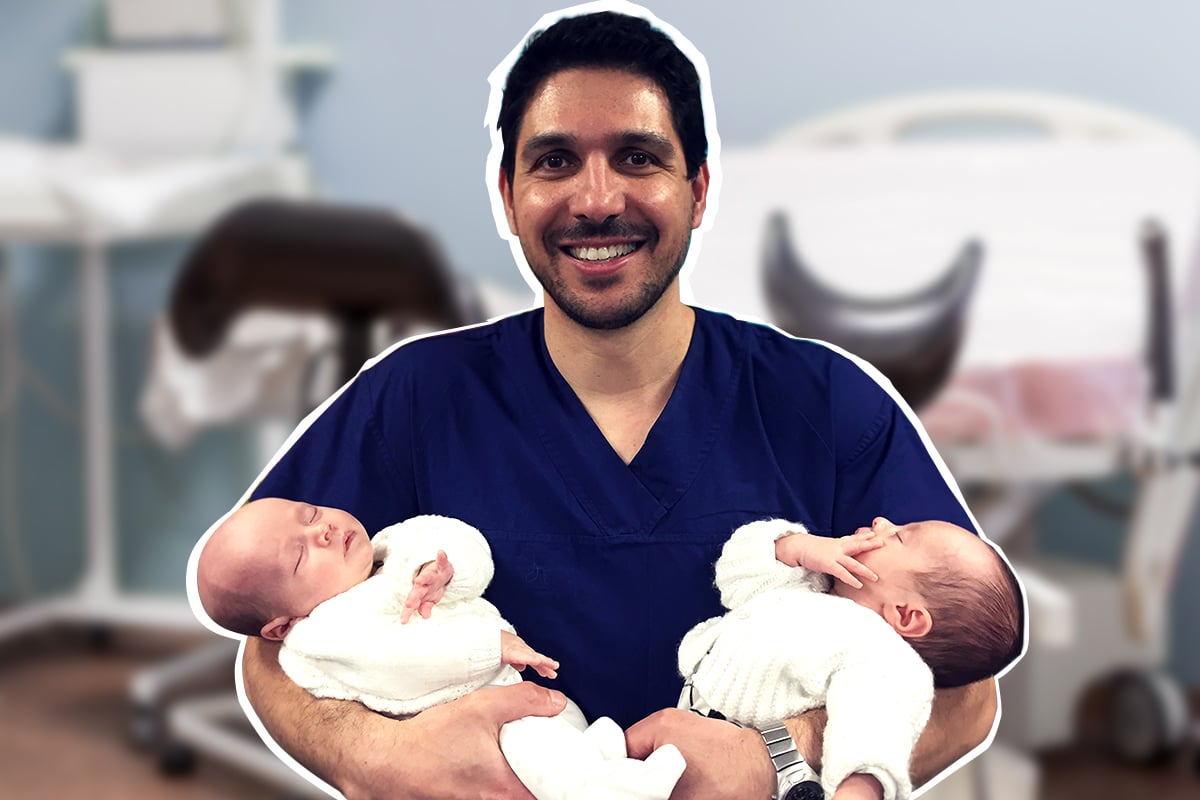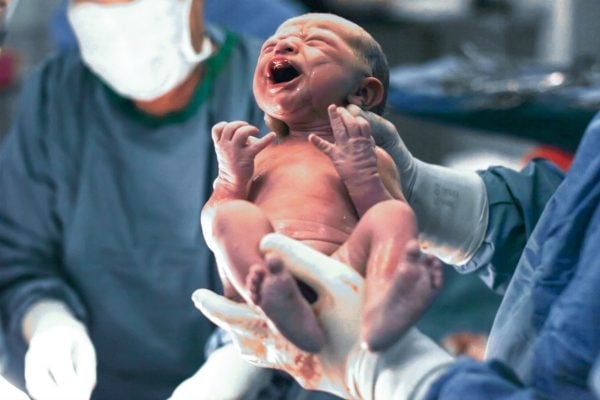
Dr Joseph Sgroi was on his way to becoming a cardiologist when his wife had their first child.
“The whole experience was so joyous, it was fantastic. It made me realise what my passion had been all along,” the Melbourne-based obstetrician told Mamamia.
Dr Sgroi went back to medical school and retrained in obstetrics and gynaecology. He is now a highly regarded and sought after professional and expert in women’s health, pregnancy, childbirth and fertility.
He also happens to be a man.
You can listen to Dr Sgroi on Hello Bump. Post continues after podcast.
In fact, more than half of the O&G profession are male.
But a columnist for The Australian posed the question at the weekend: Is it really a job for a man?
“I always gravitate towards female gynaecologists, just as I presume many men gravitate towards male andrologists and urologists. First-hand knowledge – why wouldn’t you?” Nikki Gemmell wrote.
“What’s their motivation to specialise in this most intimate of arenas?” she added.
Gemmell went on to relay that a female doctor friend had suggested that perhaps: “[Male gynaecologists] hate women, and like to see them in pain?”
It’s a claim Dr Sgroi completely rejects.
“None of us… no one goes into medicine to cause harm to people,” he said. “All of us go into it in an altruistic way to help people.”
The opinion immediately started a conversation online, with many in the medical community, along with their families, patients and colleagues, responding to Gemmell’s piece.





























































































